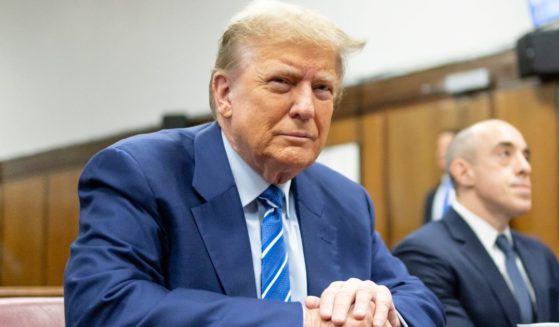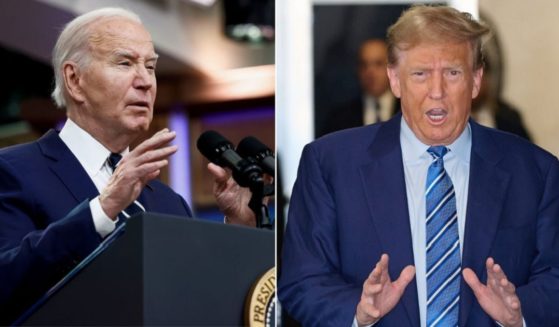Get the latest news delivered right to your email.
2024 Election
Top Stories
Advertisement
Weaponized
For more A.F. Branco cartoons, go to WesternJournal.com/cartoons.
Turley: Bragg's Created 'Frankenstein Case' Against Trump Based on Dead Misdemeanors
George Washington University Law School professor Jonathan Turley sees a way Donald Trump can beat DA Alvin Braggs' hush money case.
By Randy DeSoto
April 17, 2024
Comment
MoreShare
SCOTUS Appears to Put Hundreds of Biden DOJ Jan. 6 Charges in Doubt
Supreme Court justices appeared skeptical Tuesday of the Biden Justice Department's use of a federal obstruction statute in Jan. 6 cases.
By Randy DeSoto
April 17, 2024
Comment
MoreShare
Former ESPN Lib Journalist Has Complete Meltdown Over Caitlin Clark's Salary - 'Another Form of Misogyny'
You don't even have to look at the numbers to know how bogus Hill's argument is. But it certainly gets worse when you do.
By C. Douglas Golden
April 17, 2024
Comment
MoreShare
'Shrek 2' Re-Release Embarrasses Disney, Performs Better Than All These New Animated Films
The 20th anniversary re-release of "Shrek 2" just completed its opening weekend at the box office, passing up the totals of some newer films.
By Michael Austin
April 16, 2024
Comment
MoreShare
'Unbiased' CNN Reporter Gets Wake-Up Call from Normal Americans When He Can't Imagine Why Anyone Would Miss Trump Years
A CNN commentator turns to armchair psychology to try to understand Americans -- and remembers a college ex-girlfriend.
By Joe Saunders
April 16, 2024
Comment
MoreShare
Pro-Palestinian Agitators Attempting to Block Miami Road Find Out Things Are Different in Florida
Miami police removed pro-Palestinian protesters who blocked traffic in yet another show of characteristic left-wing narcissism.
By Michael Schwarz
April 16, 2024
Comment
MoreShare
Hundreds of African Immigrants Flock to NY City Hall to Complain That Living Conditions Are 'Not What They Were Expecting'
Migrants from Africa and elsewhere protested NYC living conditions, prompting self-righteous liberals to respond with more virtue-signaling.
By Michael Schwarz
April 16, 2024
Comment
MoreShare
Advertisement
Bidenomics: Americans Taking Drastic Measures to Keep a Roof Over Their Heads, Poll Shows
Joe Biden's economy is so bad that some Americans report having to skip meals in order to remain afloat.
Comment
MoreShare
Bible Prophecy: What Do Israel's Mysterious Red Cows Have to Do with Middle East Tensions and End Times?
Red heifers delivered from Texas to Israel may well be another sign that the world is entering the end times.
Comment
MoreShare
The True Jesus: Dispelling the Liberal Myths and Misperceptions - Part Three
Christians can and should fight the culture war; we simply need to understand God’s rules of engagement first.
Comment
MoreShare
Advertisement

































